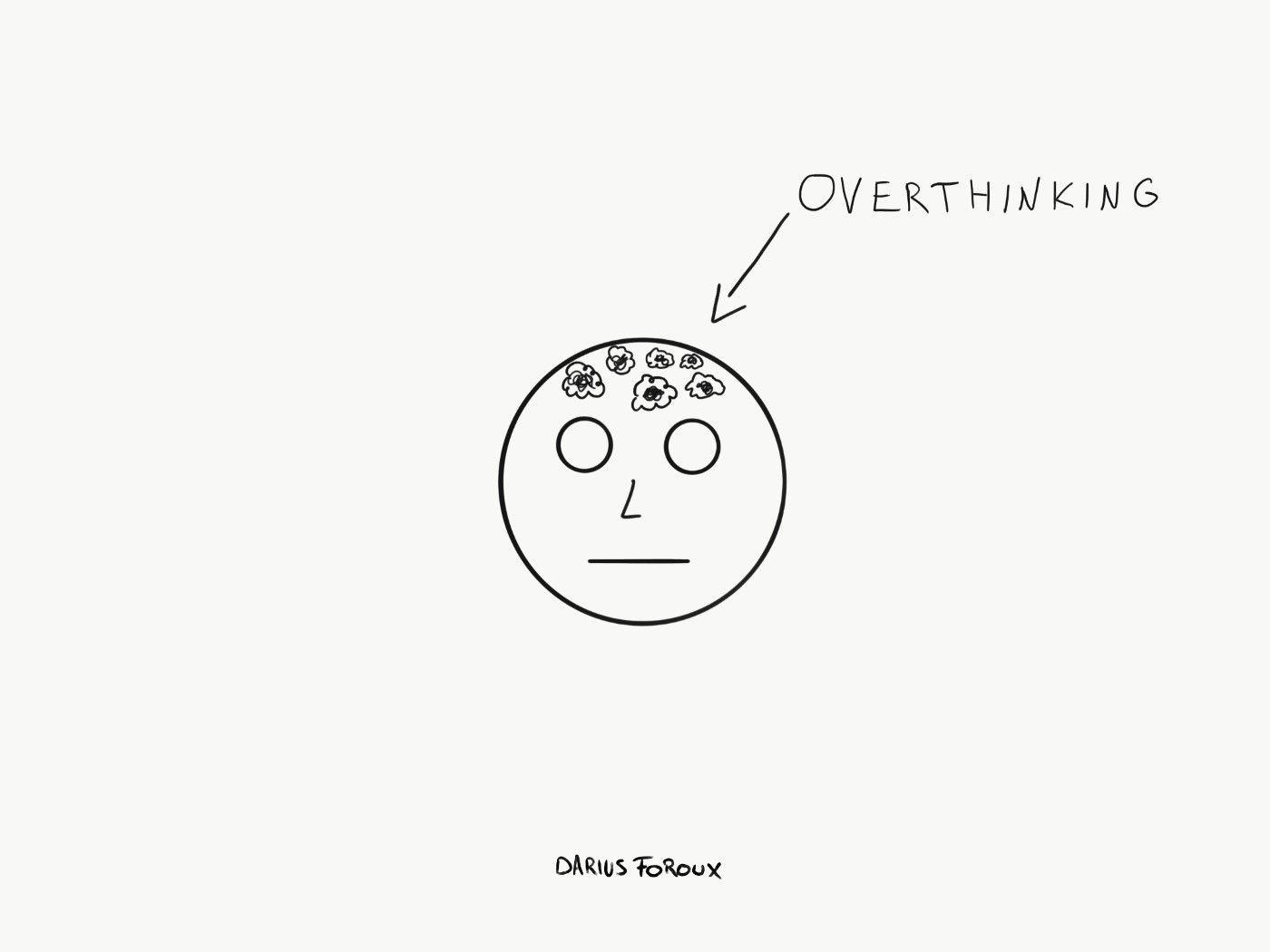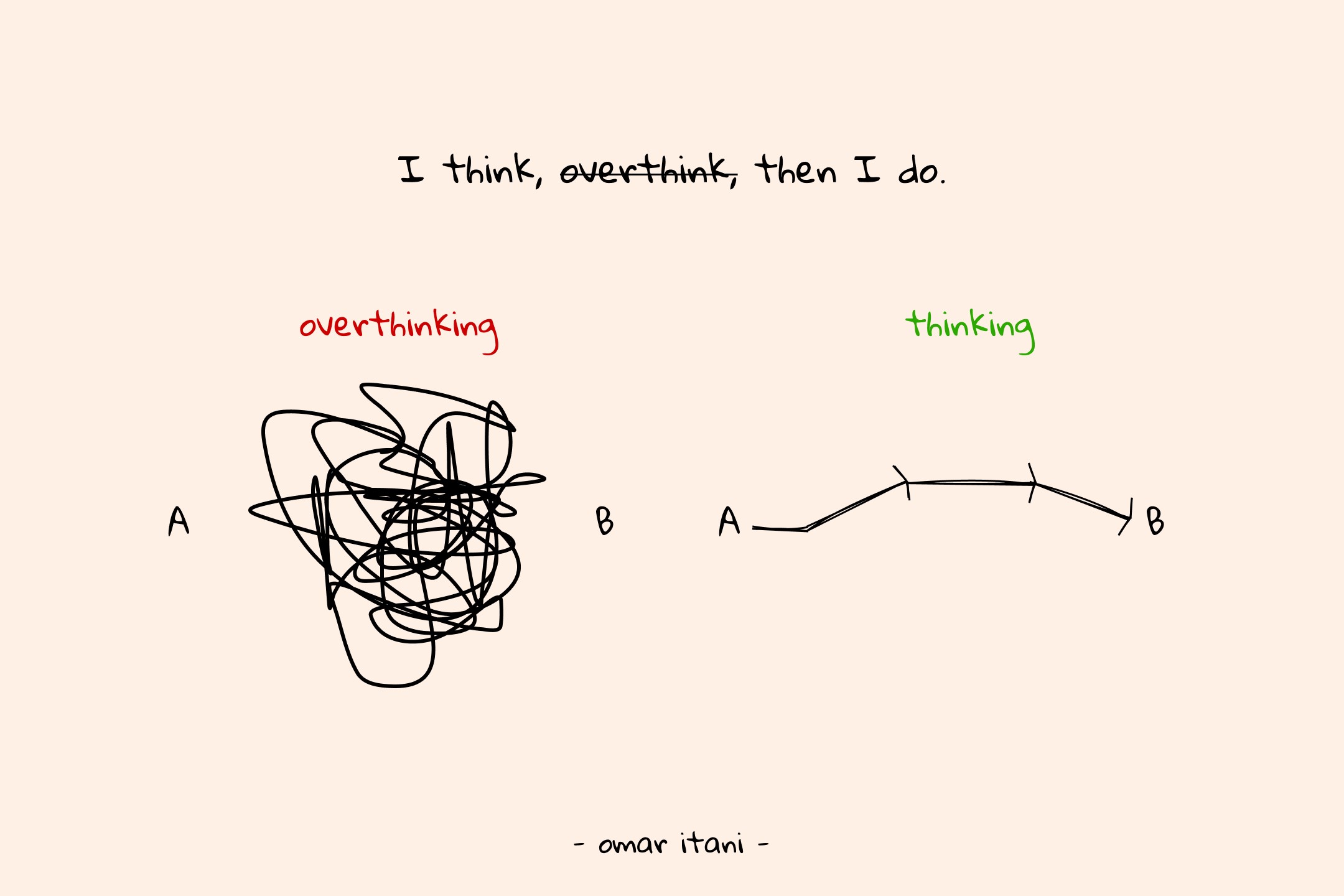Irrational ideas, which are frequently negative or disturbing, affect many people. You may have heard terminology like ruminating, self-deprecating, or catastrophizing that refer to unreasonable thinking. It’s helpful to first become aware of certain thought patterns in order to change your thinking. You may learn to address and rephrase your thoughts once you understand how you think. Thoughts are really powerful. Your thoughts become a part of your everyday life.
“Whatever you hold in your thoughts on a constant basis is exactly what you will experience in your life,” says Tony Robbins. The world’s most successful people understand this, and the only difference between them and the rest of us is that they’ve learned how to use the power of thought to help them succeed. You’re not alone, and you weren’t born with a proclivity for overthinking.
Overthinking is the outcome of one fact about human nature: we all have behavioral tendencies. These patterns emerge throughout time as a result of life events. Patterns may be taught and unlearned in the same way that they can be learned. The goal is to figure out what’s triggering your overthinking and then take action to shift your mentality. However, it is sometimes easier said than done.
What is the definition of overthinking?

“To think about something too much or for too long,” says the conventional overthinking definition. While it’s natural to consider options when making a decision or assessing a situation, overthinking occurs when you can’t get out of your own head. It happens to everyone at some point in their lives — we all have incidents that give us anxiety or tension.
Some folks can’t seem to get their worries to go away. They are concerned about the future, making dire forecasts about implausible catastrophes that have yet to occur. They also linger on the past, berating themselves for what they “should have” and “could have” done differently. They are concerned about what others may think of them, or they allow negative self-talk to develop in their heads.
Overthinking a difficult decision might also lead to complications. Replaying all of your alternatives in your head might lead to “paralysis by analysis” — you’re frightened of making a mistake, so you don’t do anything. Making the wrong decision, on the other hand, is preferable than making no decision at all. You’ve probably had restless nights when your brain just won’t shut off, whether you’re a chronic over thinker or need to make a difficult decision. Overthinking can exacerbate depressive symptoms, raise stress levels, and impair judgement.
Why do I think far too much?
You must first answer the question, “Why do I overthink?” before you can learn how to stop overthinking. Overthinking is frequently a side effect of anxiety or depression. If this is the case, you might need to get treatment for your anxiety or depression in order to stop overthinking.
You might also notice that overthinking appears solely when you’re faced with a difficult life decision or coping with your fears. Overthinking can often be handled by changing thoughts and attitudes if it is not a symptom of a deeper emotional condition.

How can you stop yourself from overthinking?
Many people wonder to themselves, “Why do I overthink?” and never find an explanation. Stress and worry, on the other hand, are emotions that you can regulate. “Let fear be a counsellor, not a jailor,” says Tony Robbins. It’s time to face your anxieties and conquer them – and try these seven strategies to finally stop overthinking everything.
What is the best way to manage?
Irrational thoughts can be dealt with in a variety of ways. There are various treatment options available, including counselling and medication, depending on what is causing your irrational ideas.
1. Accept your thoughts:
You must first acknowledge your unreasonable notions before you can change your style of thinking. When you have an irrational thought, first label it by saying loudly or to yourself, “This is an unreasonable notion.” Remember that having these ideas does not make you a horrible person. You won’t be able to stop every absurd thought from entering your mind. Try not to “punish” yourself for having these thoughts by “pushing” them out of your head. Also, don’t fight with the concept or belief. Simply be aware of the notion and accept that it exists. You give the concept more strength when you oppose it. If you tell yourself not to think about something, you’re much more inclined to think about it. Allow some time to pass, even if it is difficult. Don’t let your irrational thought get in the way of your work. Allow yourself to experience worry, stress, or anxiety, but try to watch rather than respond to your sensations.
2. Be present in the moment:
Learning to stop overthinking requires living in the moment. Most people can’t just turn on a switch and be present – or can they? You can regain control of your mind and halt the flow of unpleasant feelings. Take a minute to recognize overthinking before it spirals out of control. Take a deep breath and concentrate on the present moment – what are you hearing and seeing? What do you have reason to be thankful for? It will take deliberate awareness at first. Meditation and priming are two daily habits that might help you retrain your brain to live in the now. It will soon become second nature to you.
3. Take charge of your feelings:
Living in the moment does not imply suppressing bad feelings. You must acknowledge and identify the core causes of your emotions in order to master them. When you’re anxious, dive a little deeper. It’s usually about facing your bigger anxieties, like not feeling in control of your life or not growing as quickly as you’d like. When you understand the fundamental causes of your overthinking, you may take steps to prevent it from happening in the first place.
4. Recognize your negative thought habits:
Negative and destructive thought patterns exist in a variety of shapes and sizes, with some being more harmful than others. These cognitive patterns emerge during times of stress and conflict, contributing to the harmful consequences of overthinking. Ruminating and constant worrying are two of the most typical tendencies. Ruminating is when you have a single or multiple connected sad or dismal ideas that run through your head over and over again.
5. Allow the past to fade away:
Over thinkers are prone to dwelling on the past, ruminating on “what ifs” and “should haves.” Those who know how to not overthink things understand that the past is simply that. It is unchangeable. The only thing you can change about it is how you interpret it. Letting go of the past is not allowing your past mistakes to influence your future decisions – or allowing negative things that have happened to you to influence your emotions. You let go of your wrath and forgive others. It’s one of the most powerful methods to alter your narrative.
When an unreasonable concept enters your mind, it might be overwhelming. You may believe that your thoughts are interfering with your ability to relax and stay present. If you’re dealing with irrational thoughts, remember that you’re not alone. Consult your doctor if your irrational thoughts are interfering with your daily life. They can recommend you to a mental health expert who can talk to you about your feelings and offer you good ways to deal with them when they emerge.

